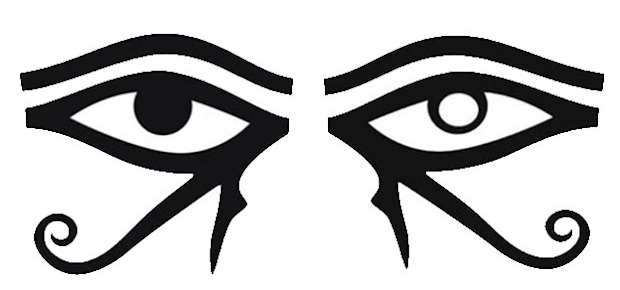「奥さん引退させといて」コナン人気声優に不倫&中絶報道…“元声優妻”に集まる同情の声
5/23(木) 16:40配信
5/23/2024
クックロビン音頭
くっくろびんおんど
漫画「パタリロ!」の中で歌われる歌。および、アニメ「ぼくパタリロ!」のEDテーマ。さぁ~皆さん!概要を拝借!!パパンがパン!!アニメ『ぼくパタリロ!』の21~47話で使用された曲。歌は白石冬美&スラップスティック。
「誰が殺したクックロビン」というサビは原作コミックでも何度も登場している。
元ネタは萩尾望都原作のポーの一族の一篇『小鳥の巣』にて、登場人物たちが口にした歌。
歌詞は、古くから伝わるマザー・グースの童謡「Who Killed Cock Robin?」。
ちなみにクックロビンとは駒鳥のことで、殺したのはスズメであるとされる。
『パタリロ!』劇場版パンフレットによるとクックロビンを殺したのは『ストップ!!ひばりくん!』の大空いばりである。作中本当に「クックロビンを殺したのは私です」というシーンがある。確か両方同じ様な時間に放送されてた。実にけしからん時代であった。
古谷 徹(ふるや とおる、1953年〈昭和28年〉7月31日[4][12][15][16] - )は、日本の声優、俳優、ナレーター[10]。神奈川県横浜市磯子区[9]出身。青二プロダクション所属[11]。別名義に蒼月 昇(そうげつ のぼる)がある(後述)。妻は元声優の間嶋里美。元妻は声優の小山茉美[12]。小学生の頃から、ウクレレをしており、中学1年生になった時に、入学祝いというんで両親にギターを買ってもらい、1人でギターを弾いていた[3]。
中学2年生の時に、ジミ・ヘンドリックスに憧れ[3][13]、中学3年生の時に同級生とロックバンドを組み、リードギターとボーカルを担当し、ギターに夢中になってミュージシャンになろうとしていた時期もあった[21]。
大学時代に渡辺プロダクション経営の東京音楽学院に入学し、歌手デビューを目指していたという[21]。
音楽面では、1977年に声優仲間とバンド「スラップスティック」を結成(古谷はドラムを担当)[8][28][29][30][31]。キャニオンレコード(現:ポニーキャニオン)より『いじわるばあさん』のテーマ曲、『ぼくパタリロ!』のエンディング曲『クックロビン音頭』などの他、11枚のアルバムを約10年の活動中にリリースした[29][30][31]。その後解散したが、メンバーだった曽我部和恭、鈴置洋孝が2006年に相次いで死去したことに際し、追悼ライブを行っている[31][32]。
"Who Killed Cock Robin" is an English nursery rhyme. It has a Roud Folk Song Index number of 494.
Lyrics
The earliest record of the rhyme is in Tommy Thumb's Pretty Song Book, published in 1744, which noted only the first four verses. The extended version given below was not printed until c. 1770.[1]
- Who killed Cock Robin?
- I, said the Sparrow,
- with my bow and arrow,
- I killed Cock Robin.
- Who saw him die?
- I, said the Fly,
- with my little teeny eye,
- I saw him die.
- Who caught his blood?
- I, said the Fish,
- With my little dish
- I caught his blood.
- Who'll make the shroud?
- I, said the Beetle,
- with my thread and needle,
- I'll make the shroud.
- Who'll dig his grave?
- I, said the Owl,
- with my pick and trowel,
- I'll dig his grave.
- Who'll be the parson?
- I, said the Rook,
- with my little book,
- I'll be the parson.
- Who'll be the clerk?
- I, said the Lark,
- if it's not in the dark,
- I'll be the clerk.
- Who'll carry the link?
- I, said the Linnet,
- I'll fetch it in a minute,
- I'll carry the link.
- Who'll be chief mourner?
- I, said the Dove,
- I mourn for my love,
- I'll be chief mourner.
- Who'll carry the coffin?
- I, said the Kite,
- if it's not through the night,
- I'll carry the coffin.
- Who'll bear the pall?
- We, said the Wren,
- both the cock and the hen,
- We’ll bear the pall.
- Who'll sing a psalm?
- I, said the Thrush,
- as she sat on a bush,
- I'll sing a psalm.
- Who'll toll the bell?
- I, said the Bull,
- because I can pull,
- I'll toll the bell.
- All the birds of the air
- fell a-sighing and a-sobbing,
- when they heard the bell toll
- for poor Cock Robin.
The rhyme also has an alternative ending, in which the sparrow who killed Cock Robin is hanged for his crime.[2] Several early versions picture a stocky, strong-billed bullfinch tolling the bell, which may have been the original intention of the rhyme.[3]
A number of theories have been advanced to explain the meaning of the rhyme:
- The rhyme records a mythological event, such as the death of the god Balder from Norse mythology,[1] or the ritual sacrifice of a king figure, as proposed by early folklorists as in the 'Cutty Wren' theory of a 'pagan survival'.[6][7]
- It is a parody of the death of King William II, who was killed by an arrow while hunting in the New Forest (Hampshire) in 1100, and who was known as William Rufus, meaning "red".[8]
- The rhyme is connected with the fall of Robert Walpole's government in 1742, since Robin is a diminutive form of Robert and the first printing is close to the time of the events mentioned.[1]
- According to Celtic traditions, Lugh, the sun god who dies as the nights get longer after the summer solstice, is marked in the old Celtic pictographic calendar with a bow-and-arrow shape. Lugh was the primary god representing the red sun and was also known in Welsh as "Coch Rhi Ben", anglicised to "Cock Robin" (coch meaning red, rhi meaning lord and ben meaning leader – a nod to the belief that souls became birds after death). The sparrow who kills him with "my bow and arrow" represents Brân the Blessed – the god of winter in the form of a raven.
- According to Celtic traditions, Lugh, the sun god who dies as the nights get longer after the summer solstice, is marked in the old Celtic pictographic calendar with a bow-and-arrow shape. Lugh was the primary god representing the red sun and was also known in Welsh as "Coch Rhi Ben", anglicised to "Cock Robin" (coch meaning red, rhi meaning lord and ben meaning leader – a nod to the belief that souls became birds after death). The sparrow who kills him with "my bow and arrow" represents Brân the Blessed – the god of winter in the form of a raven.
Taurus (Latin, 'Bull') is one of the constellations of the zodiac and is located in the northern celestial hemisphere.
5/23/2024
タブリーズ(ペルシア語: تبریز; Tabrīz [tæbˈɾiːz] (音声ファイル))はイラン北西部の都市。東アーザルバーイジャーン州(東アゼルバイジャン州)の州都。人口は約140万人でイラン第4位。
歴史
この都市がいつ建設されたかには諸説あり、その歴史は少なくとも3世紀のサーサーン朝までさかのぼることができる。タブリーズの名は、297年にアルメニア王国の王ティリダテス3世の名に因んでタウリス (Tauris) と呼ばれたことに由来する。その後、アラブ人のイスラム勢力が侵攻する。8世紀のアッバース朝のカリフであったハールーン・アッ=ラシードの妻の一人によって再建された。The Anti-Taurus Mountains (from Greek: Αντίταυρος) or Aladaglar are a mountain range in southern and eastern Turkey, curving northeast from the Taurus Mountains.[1]The Batman River is a major tributary of the Tigris in southeast Turkey. The region along the Batman River is known for its oil fields.https://jyado.blogspot.com/2024/05/islam-is-curse-upon-humanity-lol.html
Course
The river originates in Turkey's Anti-Taurus Mountains
5/18/2024





bellとbullは紙一重w
返信削除